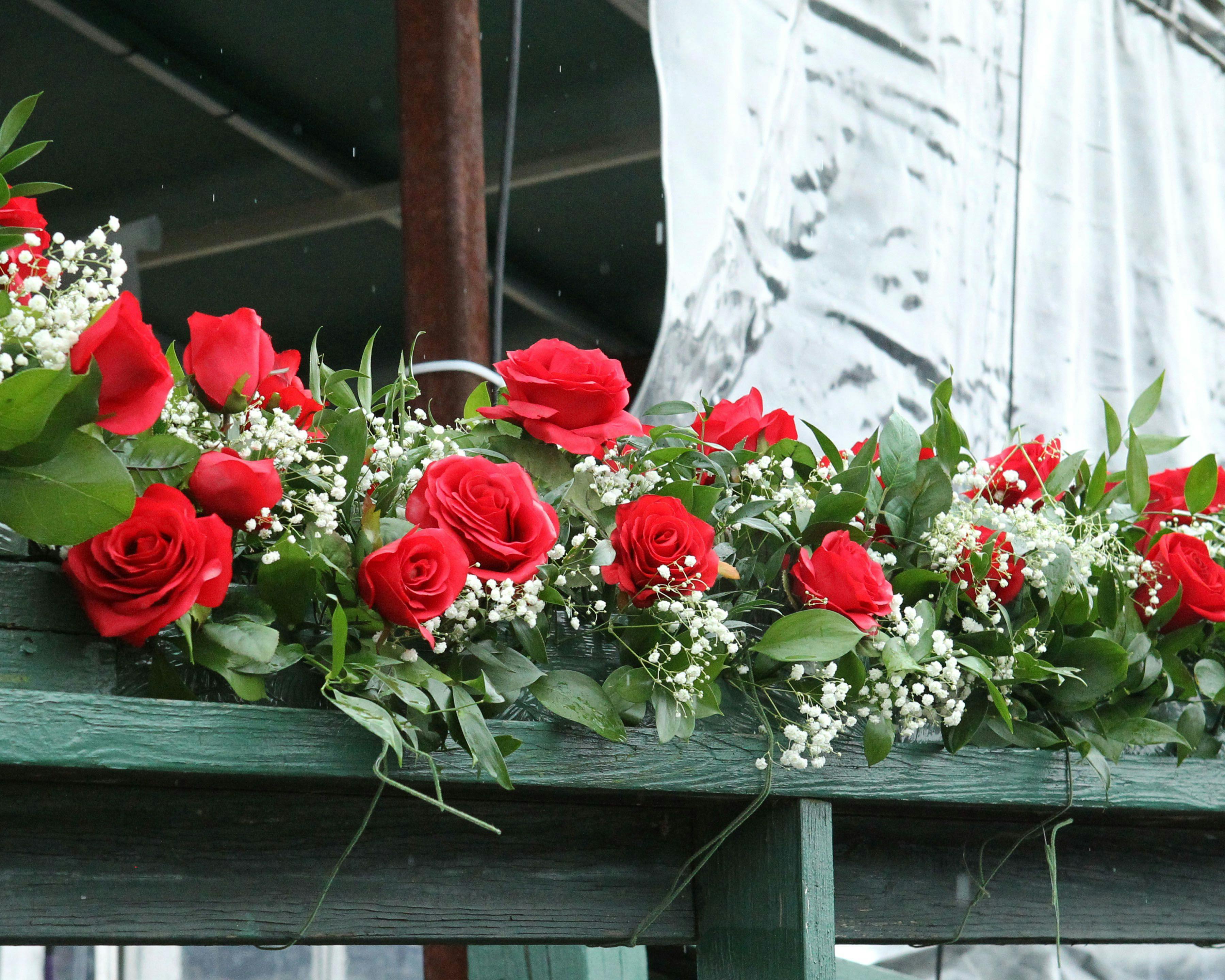Why didn't Man o' War run in the Kentucky Derby?

Kentucky Derby roses (Horsephotos.com)
Considered by many to be the greatest thoroughbred racehorse of all-time, Man o’ War was a dominant force on the track. He won 20 of his 21 career starts, with his only loss occurring due to a disastrous starting gate snafu in the Sanford Stakes at Saratoga. Ironically, the race was won by a horse named Upset, whom Man o’ War would go on to beat six times before he retired.
Man o’ War was entered in many of the most prestigious races available to him in his career. He won the Tremont, Hopeful, and Futurity Stakes as a two-year-old, with one victory coming easier than the next.
Many were afraid to enter their horses against the freakishly-talented son of Fair Play by the time he turned three. That paved the way for a wildly-successful sophomore season, headlined by victories in the Preakness Stakes and Belmont Stakes. He also scored in the Withers, Dwyer, Travers, Jockey Club Gold Cup, and Lawrence Realization Stakes, setting multiple track records in the process despite ceding plenty of pounds to his foes.

Race of the Ages - Sir Barton vs Man o' War on Nov. 2, 1920 (Wikimedia Commons / Educational Films Corporation of America / Educational Film Exchanges)
Man o’ War’s owner – Samuel D. Riddle – even sought out a match race with four-year-old foe Sir Barton, who won the Triple Crown in 1919 and had a solid season in the handicap ranks in 1920. Amazingly, Man o’ War would win the Kenilworth Park Gold Cup against Sir Barton by seven lengths.
But in spite of all his success, there’s an obvious hole in his résumé. Man o’ War did not win the Kentucky Derby, perhaps the most important race for three-year-olds in the world. In fact, the race wasn’t even on the radar for Riddle, who declared his champion horse would not participate in the 1920 “Run for the Roses” in September of 1919.
Riddle was concerned about the volatility of Louisville’s spring weather, and the idea of running a three-year-old 10 furlongs on the first Saturday in May seemed too outlandish to him. There was also the idea of train travel to consider; horses did not board planes and fly from track to track as they do now. Trainer Lou Festel once said that the decision to bypass the Derby was a moot point, as Man o’ War was “off his feed” at the time.
Some of these excuses hold water, while others simply paint Riddle as too conservative. But perhaps the biggest reason Man o’ War didn’t run in the Kentucky Derby is that Riddle didn’t want to risk missing the Belmont Stakes, then considered by many to be the most important race for three-year-olds in the country.
“In 1920, the Derby was a big deal, there’s no doubt about that,” Dorothy Ours, author of "Man o’ War: A Legend Like Lightning.,” told the Louisville Courier-Journal. “It was emerging. It was contending to be one of the top races in the country. But it was by no means what it is today. It wasn’t a settled matter that the Derby was more important than the Belmont.”

War Admiral wins the 1937 Kentucky Derby (Courtesy of the Kentucky Derby/Churchill Downs)
Riddle never seemed to express regret about missing the Derby with Man o’ War. It wouldn’t be until 1937 when War Admiral, Man o’ War’s most famous son, was entered by Riddle in the “Run for the Roses.” War Admiral did his father proud by sweeping the Triple Crown races that year.



